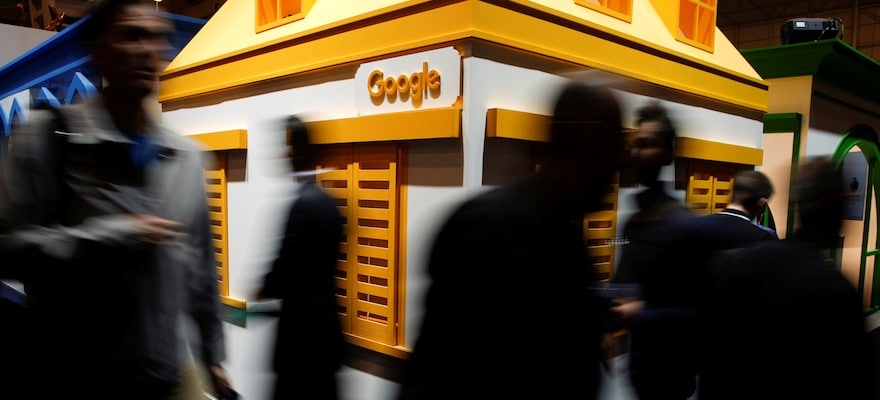The U.S. stock indices are at new highs this week. Some specific assets have performed great in response to their inner corporate drivers. The United Parcel Service (UPS), a well-known worldwide package delivery and supply chain management company increased its Q4 2020 sales by 21% to $24.75 billion.
Now, for Q1 2021, the consolidated revenue of UPS is $22.69 billion "only" but it has exceeded the average expert polls' expectations by more than $2 billion. Most important details were the operating profit at $2.8 billion, up 158% year-on-year, with diluted earnings per share at a record $2.77 for the quarter, up 141% on an adjusted basis.
That's a great figure even to compare with great quarters of 2020 too, and the current equity per share is bigger by half than the average quarter numbers for 2019. UPS gained additional money from pandemic-driven e-commerce including fees for the delivery of Covid-19 vaccines for the first time, and this point also remains the source of the future income during the further vaccination rollout. So, the company reaffirmed its planned capital expenditure of $4 billion for 2021.
It will also repay $2.5 billion in debt in 2021, including $1.5 billion it already paid in the first quarter. Citigroup has raised its target price for UPS to $200 two weeks before the new round of shares soaring.
“We have grown more positive on the prospects for parcel stocks this year as volume looks stronger than expected, providing durability to growth even against difficult comps, and this volume growth should sustain strong pricing power gained in the pandemic,” Christian Wetherbee, the analyst at Citigroup wrote in the middle of April.
At the same moment, Credit Suisse analyst Allison Landry had set a price target of $215 for the company, while now the price is just nearly $195, even after its Tuesday's jump. So, there is enough empty space for another opportunity to grow above the current highs again, to say nothing of updating many expert forecasts after that fresh Q1 2021 financial report.
Google parent Alphabet also remarkably beat average quarterly revenue estimates of $51.7 billion by almost $4 billion to $55.3 billion. It's a 34% growth over last year's first quarter, when advertisement sales fell significantly. But, that is also much higher than the $36.35 billion of revenue figure in non-pandemic and quite normal Q1 2020.
Google advertisement sales surged 32% compared with the same period a year ago, while Cloud service sales increased 45.7%. The results are the first clear indication that the use of Google services may be held or even increase later, beyond lockdowns and all other pandemic restrictions that have pushed people to shop and chat online more than usually. Future advertisement buying by travel and entertainment companies would be a positive sign as booking services and movie studios were among Google's biggest spenders before the pandemic. The quarterly profit of Google rose 162% to $17.9 billion, or $26.29 per share, being vastly superior to preliminary estimates of $15.88 per share cited by Refinitiv.
The company said earnings benefited from unrealized gains from venture capital investments and slower depreciation of some data centre equipment. Google CEOs announced a $50 billion share buyback, this share repurchase program by Alphabet's board follows a $25 billion buyback program in 2019. Visa Inc, the world's biggest payment processor, also beat Wall Street's estimates for quarterly profit. It was highly expected by the market community, because customers shopped more online, helping to counter a hit to cross-border transaction volumes from a slowdown in the global travel industry.
Many famous funds, including Goldman Sachs, expect Visa shares in the horizon of the year at levels of $245 and higher, being also potentially boosted by higher inflation, which only may automatically increase the payment system's revenue and commission fees. Visa said total payment volumes rose 11% on a constant dollar basis from a year earlier, after rising 5% in the previous quarter. The number of processed transactions rose 8% from the previous year.
"The COVID-19 pandemic certainly has turned the world upside down in the last year, but we believe we are starting to see the beginning of the end and the recovery is well underway", CEO Alfred Kelly Jr said. He added, Visa had seen a return to positive growth for credit and card present transactions, and debit and e-commerce growth stayed at very healthy levels in the quarter. Visa reported net income of $1.38 per Class A share, compared with analysts' estimates of $1.27 per share.
Microsoft Q1 results beat consensus estimates too, led by strong growth in its cloud division. Yet, the company's price fell more than 3% in after-hours trade after the report, from almost $262 to $255, as market probably overleaped itself when moving too high on expectations.
However, there is little doubt that a fairly higher price for Microsoft will soon be restored, so that the market is unlikely to have time to slide to levels below $250 per share before recovery. Bill Gates' brainchild announced earnings per share (EPS) of $1.95 on revenue of $41.71B while analysts polled by Refinitiv anticipated EPS of $1.78 on revenue of $41.04B.
Revenue in productivity and business processes was up by 15% to $13.6 billion and its intelligent cloud business, including Azure, grew by 23% to $15.1 billion. Microsoft CEOs Wedbush said, "Azure revenue growing 50% which we note is well above bullish Street whisper expectations of 46% heading into the print." This article was submitted by José Maria Castro Monteiro, TeleTrade Market Analyst & Business Developer.
Disclaimer:
Analysis and opinions provided herein are intended solely for informational and educational purposes and don’t represent a recommendation or investment advice by TeleTrade.















